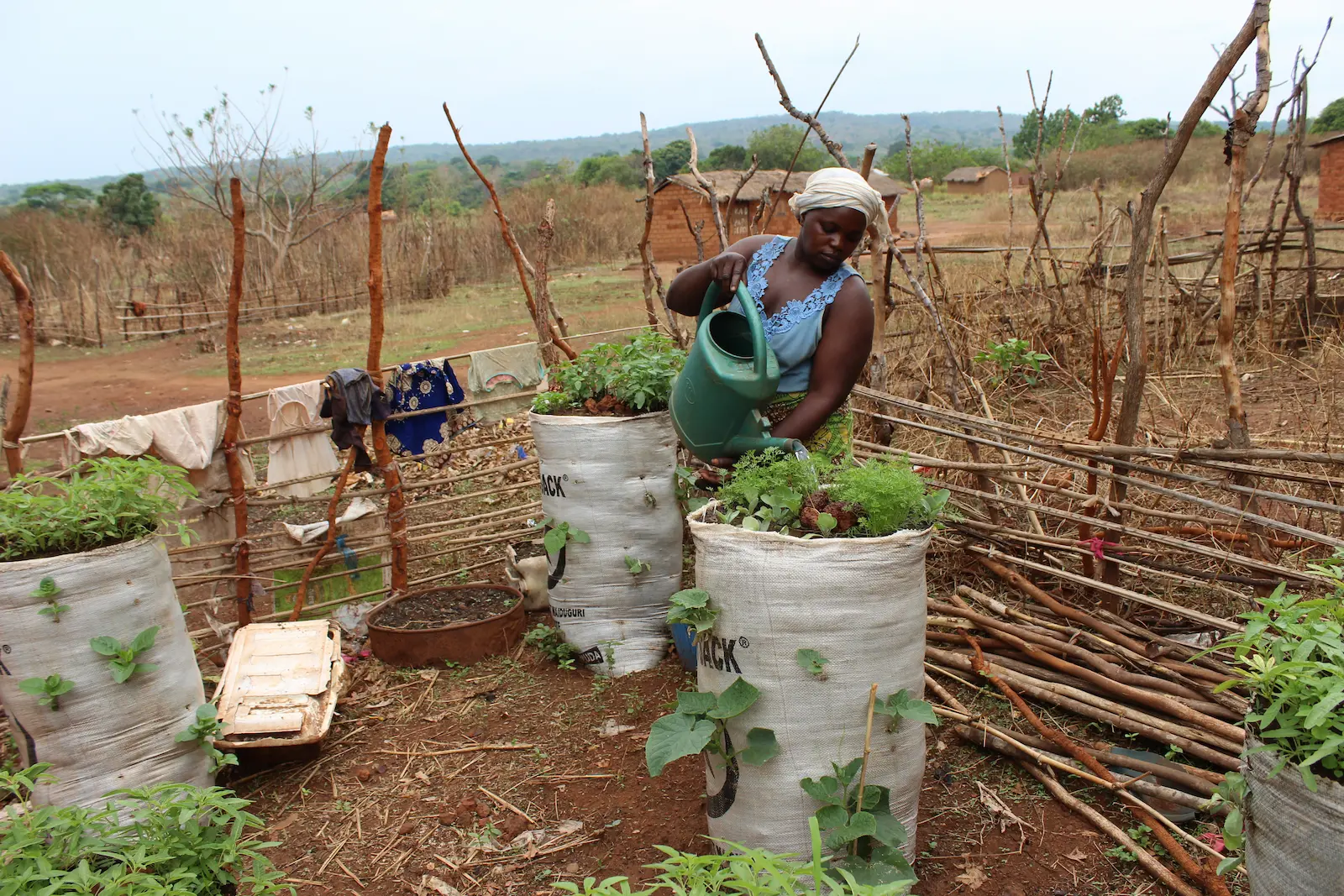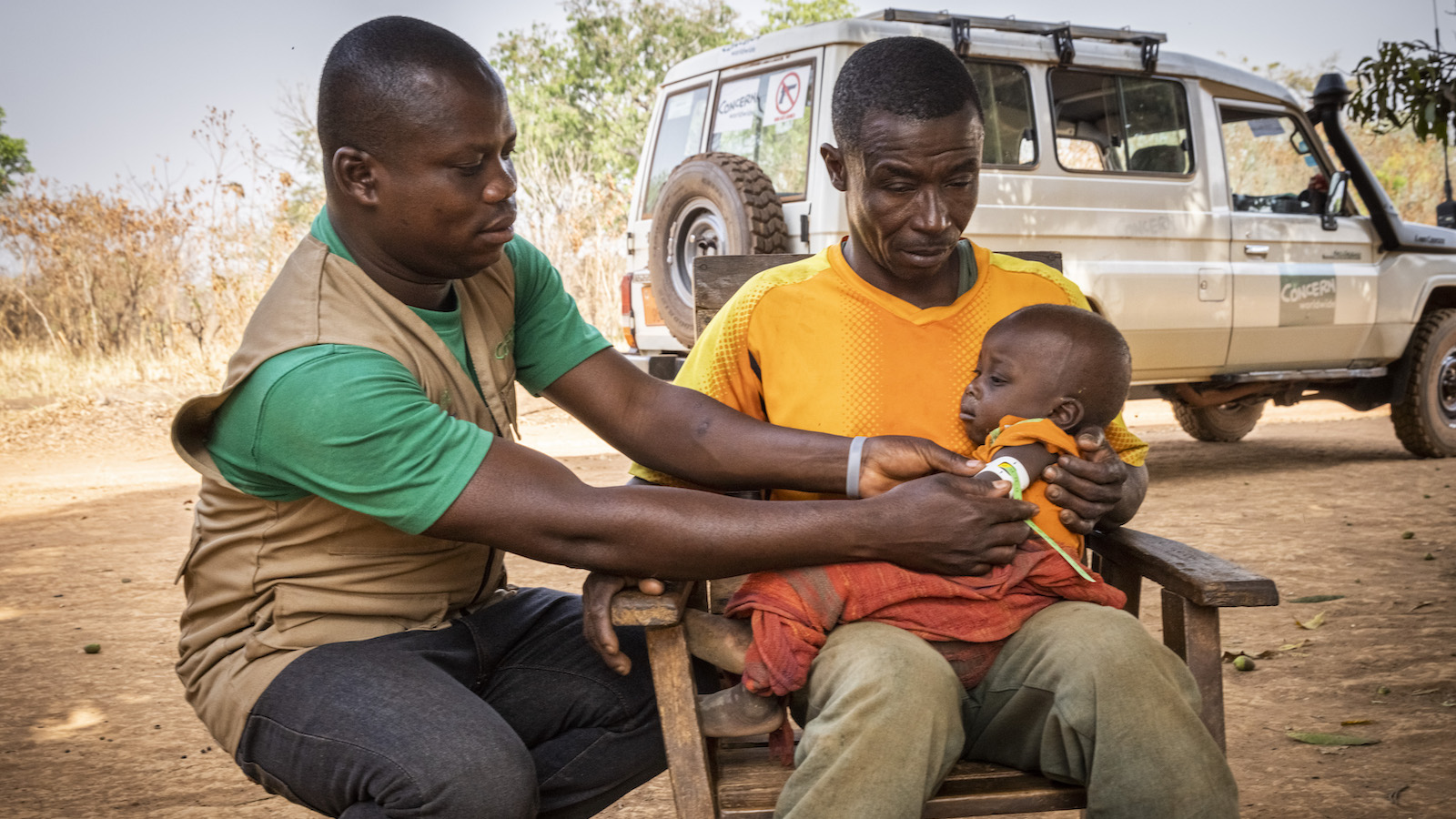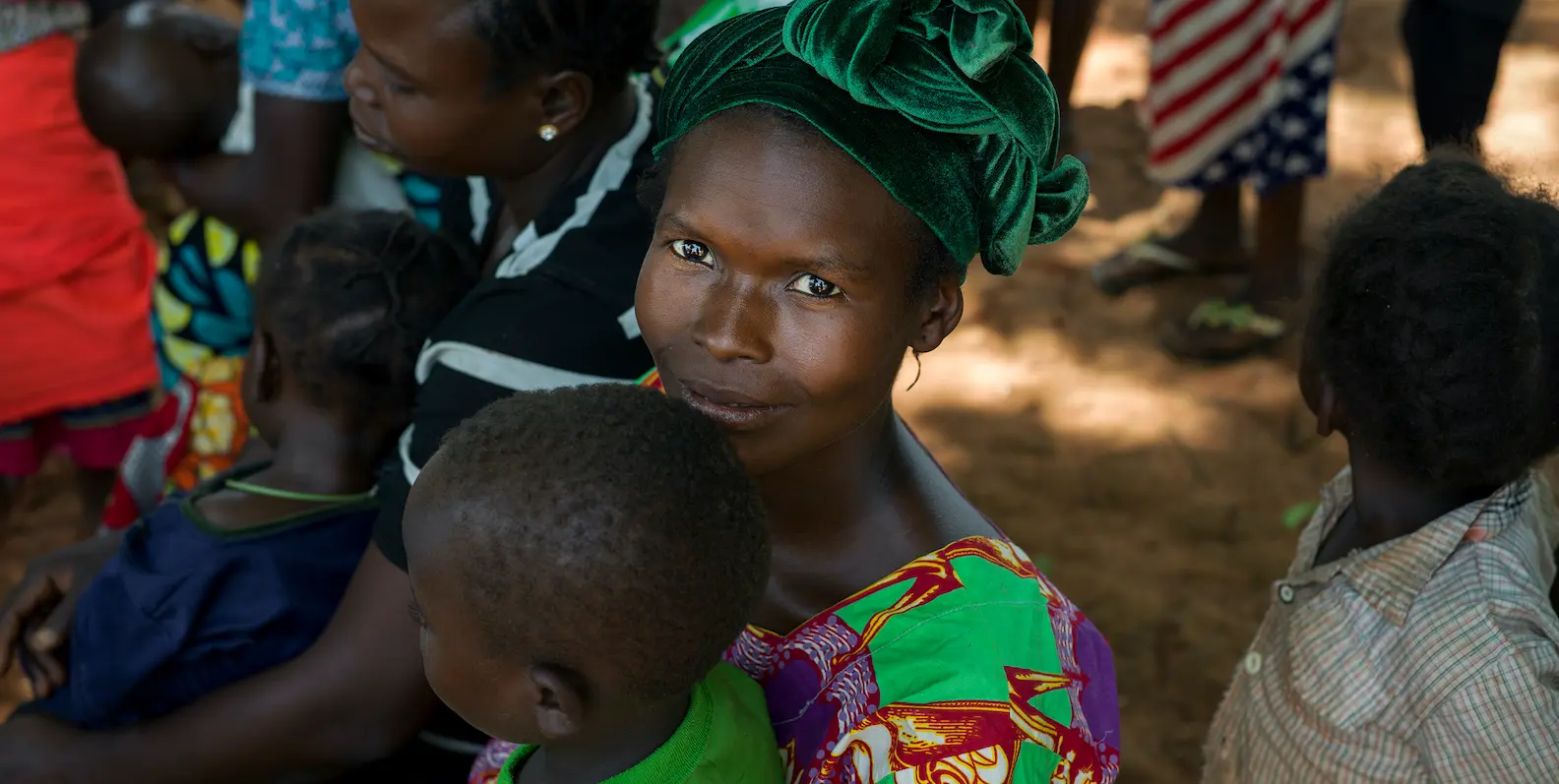The Challenge
The Central African Republic (CAR) ranks second to last in the 2018 Human Development Index, with around 79% of the country’s 4.7 million population estimated to be living in poverty. Almost 3 million people residing in CAR require humanitarian assistance where low productivity, market instability, and high gender inequality are all contributing factors, made worse by recurrent cycles of political crisis and insecurity that significantly impact women and girls in rural communities hardest. With livelihoods disrupted by conflict, food production and household purchasing power have weakened.
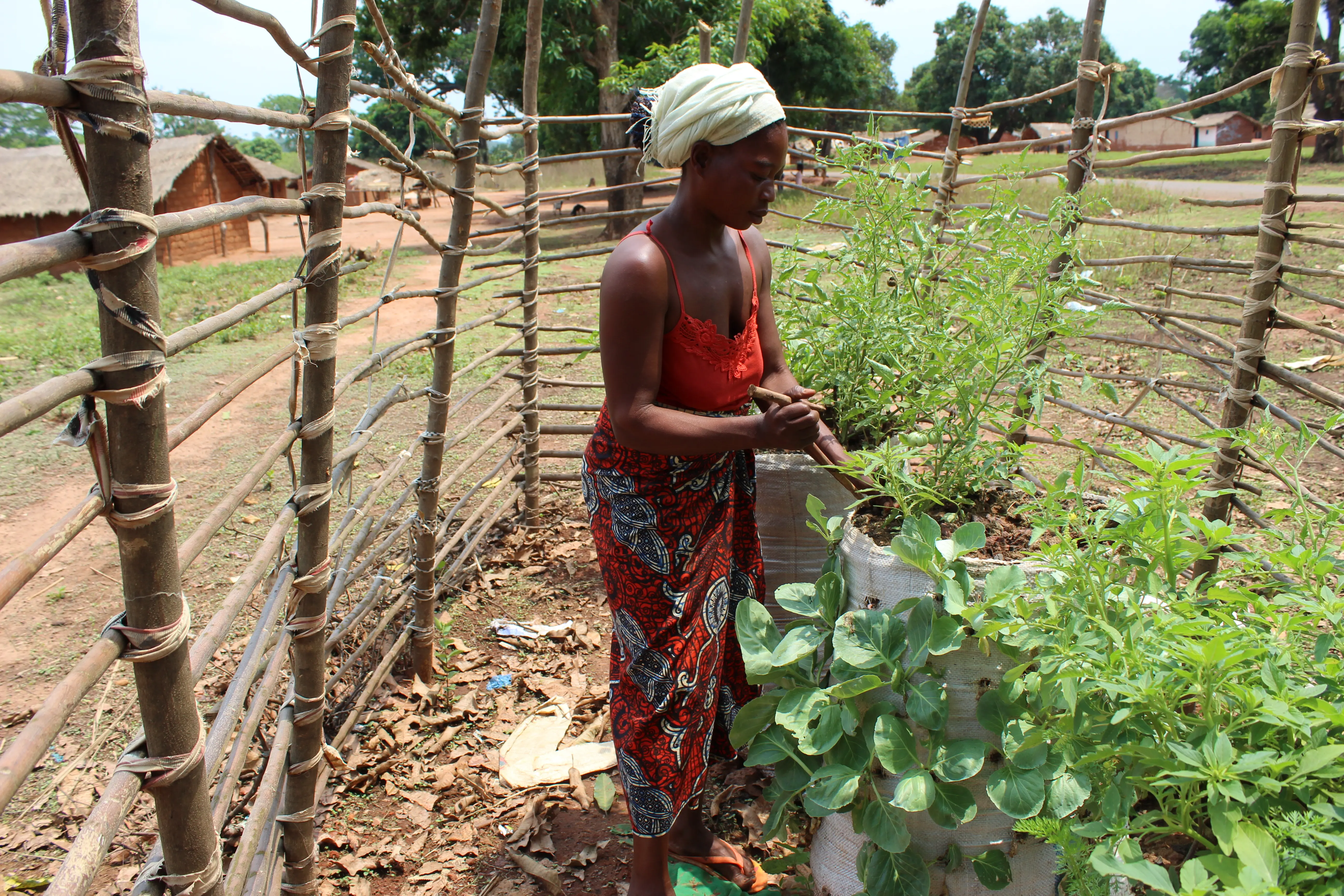
Our Response
In response, under the Irish Aid Long-Term Development Program, Concern Worldwide aims to sustainably increase household food and nutritional security levels by promoting nutritional health and climate-smart agriculture through vegetable gardening with the following intended outcomes:
- Increased and diversified food production through the promotion of climate-smart agriculture and landscape management
- Stronger access to market and economic opportunities for those living in extreme poverty
- Strengthened health system management, knowledge, and behavior of health, nutrition, and gender equality
The Implementation
The project has established 13 agricultural groups with 325 members, of which 235 are women.
Key activities include:
- Providing members with improved peanut, maize, and okra seeds and cassava cuttings.
- Training members in technical itineraries, group structuring, and post-harvest management.
- Equipping vegetable garden sites with solar systems to facilitate access to irrigation.
- Creating Village Saving Loan Association (VSLA) groups to simplify access to credit for vulnerable women, making them more financially independent.
- Supporting literacy centers.
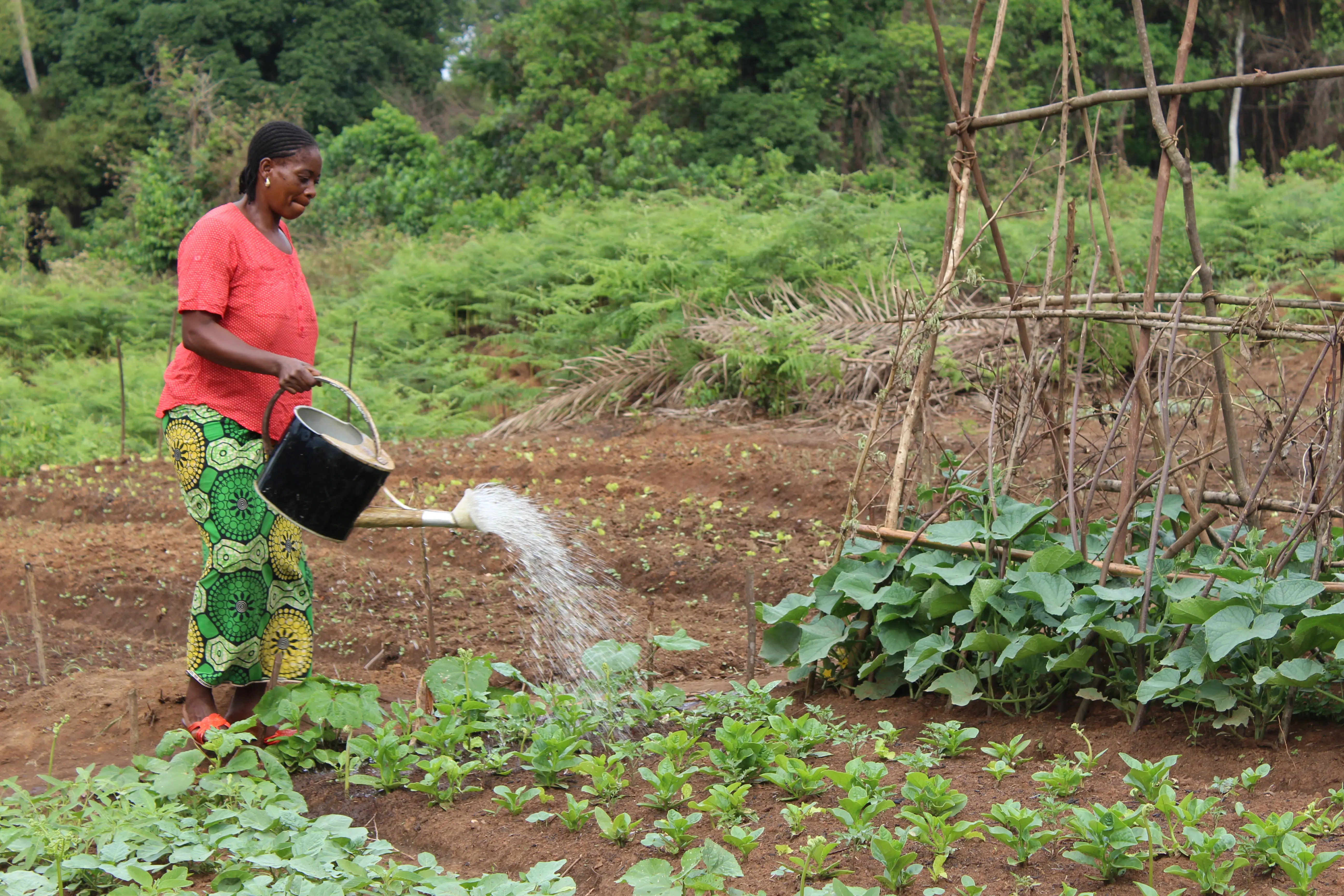
The Impact
Better management of natural resources
36 natural resource management committees were set up in each village, with 7 members per village for a total of 244 members, including 59 women with training by the General Directorate for Water, Forests, Hunting and Fishing.
Increased agricultural production and diversification
13 agricultural groups have been set up, with a total of 325 producers, including 235 women who were introduced to sack gardening and received 185 lbs of improved seeds (tomato, cabbage, eggplant, bell pepper, onion, amaranth, solanum cucumber, lettuce, carrot) and 15 agricultural tool kits (watering cans, hoes, rakes, shovels).
Improved access to business knowledge and skills
16 literacy centers were supported and, at the end of the 6-month cycle, an assessment was carried out in collaboration with the Literacy Directorate. Of the 326 learners tested, 240 were certified, representing a 77% success rate, including 69.29% among women enrolled.
Improved access to finance
25 mixed VSLA groups were set up with 534 members, including 300 women. Each group was given a kit comprising a cash register, register, calculator and pens. To facilitate access to credit and the practice of income-generating activities (IGAs), funding of 176,000 francs CFA (291 USD) was provided to 14 of the 25 groups to strengthen their cashboxes. Members began buying shares in October 2023, and to date, total savings amount to 5,294,000 francs CFA (8,738 USD), with 3,437,000 francs CFA (5,672 USD) given as credit to members.
Improved market access
To improve cassava production in particular, Concern is building 2 drying areas of 9687 sq.ft. Construction work began in December 2023 and will be completed in 2024.
Improved knowledge and behavior of health, nutrition, and gender equality
In addition to hosting 58 cooking demonstration sessions with training on dietary diversity, hand-washing messages, and health center consultations, screening of 25,804 people were carried out during home visits to sick/malnourished children, including 13,579 girls and 1,225 boys, raising awareness on essential good practices for nutrition, deliveries at the health center, and the use of mosquito nets.
Contact Us
To learn more about the IALTD Sack Garden Program in the Central African Republic, please contact Katie Waller, Director of Strategic Partnerships, at [email protected].

